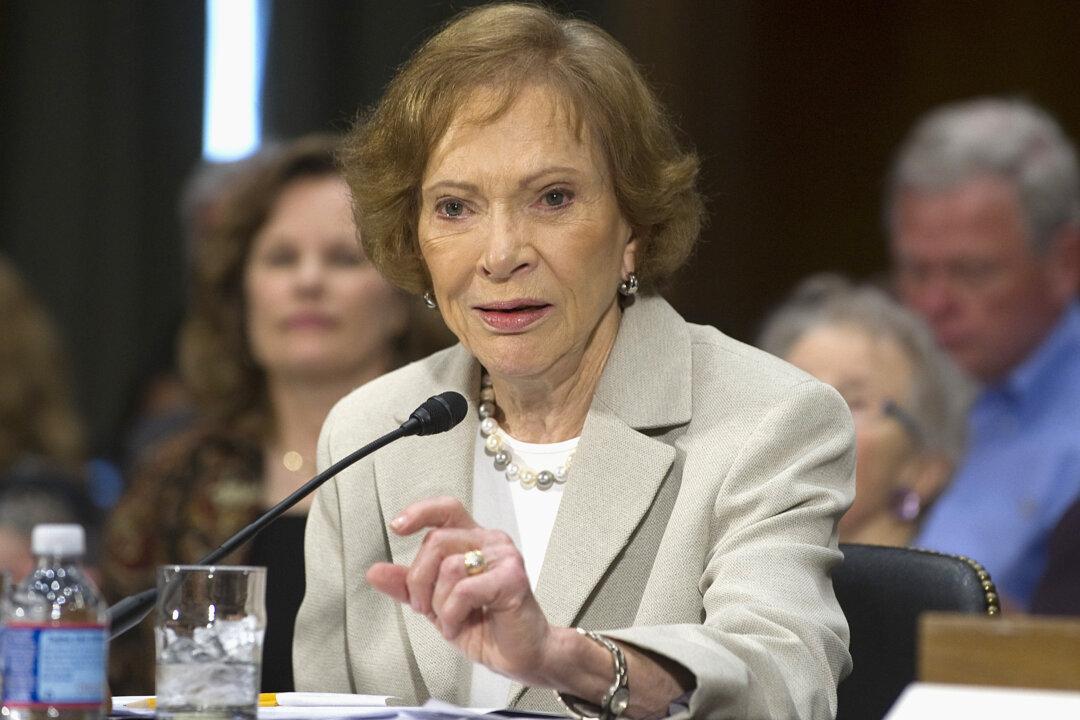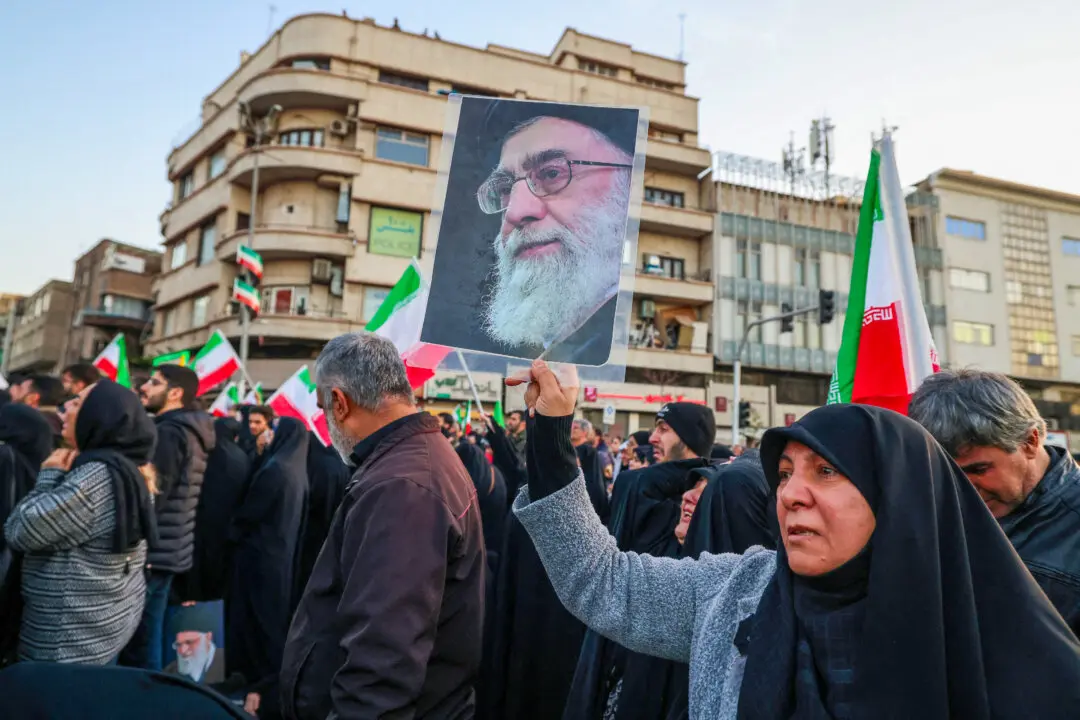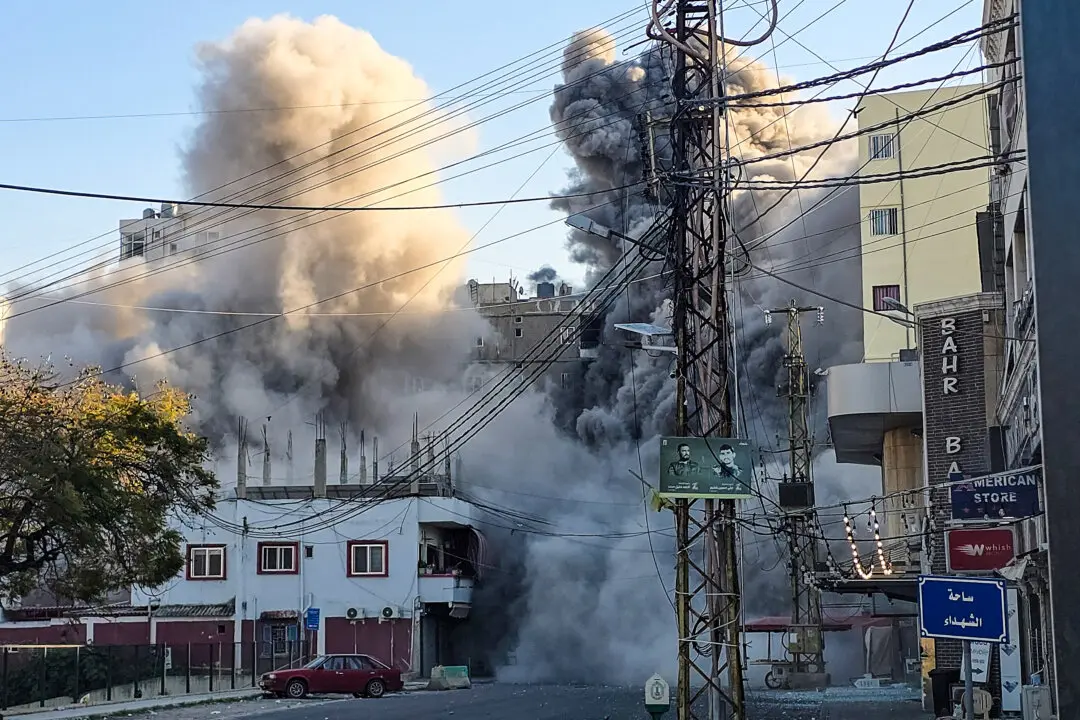Former First Lady Rosalynn Carter, a humanitarian and close policy adviser to her husband, former President Jimmy Carter, died at age 96, The Carter Center said in a Nov. 19 statement.
“Rosalynn was my equal partner in everything I ever accomplished,” President Carter said. “She gave me wise guidance and encouragement when I needed it. As long as Rosalynn was in the world, I always knew somebody loved and supported me.”





